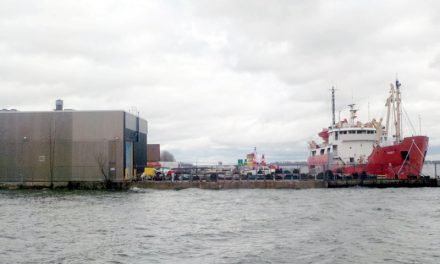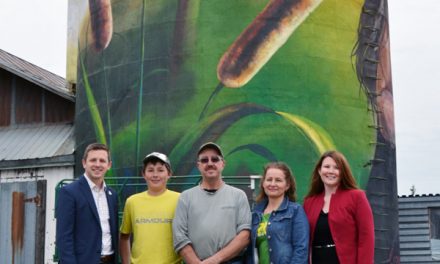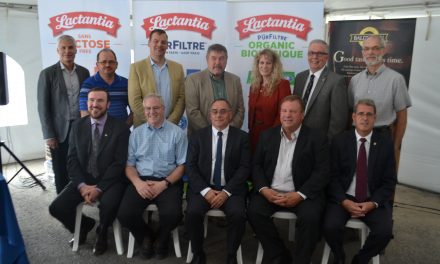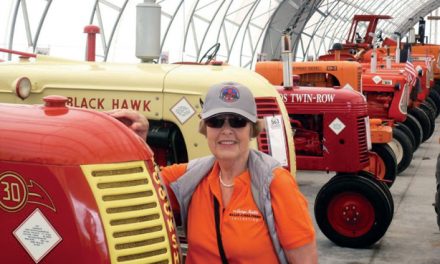By Terry Tinkess
AgriNews Staff Writer
When it comes to robotics and agriculture in Canada, right now, if you are looking at it in terms of return on investment (ROI), it really comes down to scale. You might be able to, on a relatively small scale, switch some of your acreage over to a higher value vegetable crop rather than staying with a lower maintenance, or at least less labour-intensive crop like corn.
On a larger scale, however, the payback period is still prohibitive. Still, if labour continues to be a problem, and if costs become less, then it becomes a more realistic possibility.
Robotics was just one of the topics discussed last week at the Agriculture Enlightened conference held Thursday in Winnipeg.
The host and organizer of the conference was EMILI, which is trying to help Canada become a leader in digital and precision agriculture.
According to its website, “EMILI is an industry-led non-profit committed to accelerating Canada’s growth as a leader in digital agriculture by supporting projects that advance innovative technologies and increase skills and training opportunities in the sector. Based in Manitoba, with projects that span the country, EMILI works with producers, industry, and academia to advance the adoption of intelligent technologies and provide people with the skills and training required to succeed in a digital economy.”
In a large-scale context, for example using equipment that can seed 300-400 acres a day, the cost of robotics might be prohibitive because labour costs might be the least expensive component. However, the cost of robotics which would allow a transition from 1,200 acres of corn, for example to 1,100 acres of corn and 100 acres of higher profit vegetables, especially when you cannot find sufficient labour to complete weeding, then it is at least worthy of discussion. Smaller scale, but with higher profit.
But while many producers might be interested in embracing emerging technology and diversifying the mix of crops they produce; most can’t afford to gamble. This is where the benefit of a group like EMILI comes in. They act as facilitators between agriculture and non-agriculture to find ways to align and get new ideas and technology to market faster. With real world research results available, the level of risk can drop, which might be just enough of an enticement for observers to become participants.
EMILI puts this concept into practice in locations like Innovation Farms, north of Winnipeg.
“Innovation Farms powered by ag expert is located on Rutherford Farms, a full-scale commercial seed farm that provides industry, digital ag start-ups, and academics access to leading edge equipment technology and production practices,” said Jacqueline Keena, managing director, EMILI.
“Our close connection to producers and industry experts puts us in a unique position to support innovation and entrepreneurship centred around the day-to-day operations of a commercial farm.”
Innovation Farms is part of a network of similar farms across the country, called the Pan-Canadian Smart Farm Network. The network currently has six members across three different provinces in Canada working collaboratively towards advancing ag tech solutions and sustainability across Canada. At these locations, innovators and entrepreneurs can test and refine their agricultural technologies at scale or demonstrate the value of more established technologies.
For more information on EMILI, you can visit their website at emilicanada.com.












